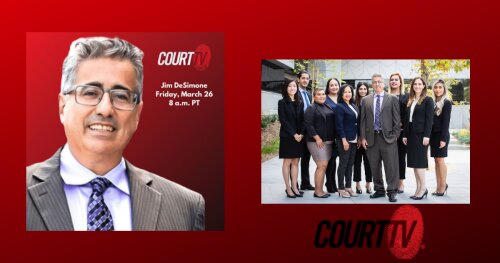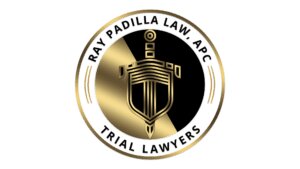Best Civil & Human Rights Lawyers in California
Share your needs with us, get contacted by law firms.
Free. Takes 2 min.
Or refine your search by selecting a city:
List of the best lawyers in California, United States
United States Civil & Human Rights Legal Questions answered by Lawyers
Browse our 1 legal question about Civil & Human Rights in United States and read the lawyer answers, or ask your own questions for free.
- My husband passed away five years ago. We have a property in th Philippines and I would like to transfer everything to my child. We are now residing in California, as U.S. citizens and my late husband a Filipino citizen.c
- How can I transfer Title on the property to my child?
-
Lawyer answer by Recososa Law Firm
Hello: We are sorry to hear about the passing of your husband, and we extend our deepest condolences. Regarding your concern, since your husband was a Filipino citizen and you are now both U.S. citizens residing in California, the property...
Read full answer
United States Civil & Human Rights Legal Articles
Browse our 2 legal articles about Civil & Human Rights in United States written by expert lawyers.
- How to Legally Use Education Savings Accounts - United States
- ESA programs use public education funds to pay for private school and related expenses, but they are created and controlled by state law, not federal law. Eligibility for the 2025-2026 school year under Senate Bill 2 will usually depend on state residency, school-age status, prior public school enrollment, and sometimes... Read more →
- Texas Parents' Bill of Rights 2026: Curriculum
- Parents in the United States have constitutional and statutory rights to direct their child's education, access school records, and challenge certain instructional materials and policies. State "Parents' Bill of Rights" laws like SB 12 usually give parents explicit rights to review teaching materials, see school library lists, consent to medical... Read more →
About Civil & Human Rights Law in California, United States
Civil and human rights law in California protects individuals and groups from discrimination, unequal treatment, and injustices that may occur in public or private settings. These laws ensure everyone, regardless of race, gender, religion, national origin, disability, age, or sexual orientation, is treated fairly under state and federal law. In California, civil rights encompass a wide range of legal protections relating to employment, housing, education, police conduct, freedom of speech, and participation in public life. California is recognized for offering some of the strongest legal safeguards for civil and human rights, reflecting its diverse and progressive society.
Why You May Need a Lawyer
People often require legal help with civil and human rights matters when facing discrimination or unfair treatment in various aspects of daily life. Common situations include:
- Experiencing discrimination at work due to gender, race, religion, age, sexual orientation, or disability
- Facing unfair housing practices, such as eviction or refusal to rent or sell based on a protected characteristic
- Being subjected to police misconduct, including wrongful arrest or excessive force
- Encountering barriers to accessing public services, facilities, or governmental benefits
- Dealing with violations of freedom of speech, assembly, or religion
- Needing legal advice about accommodations for disabilities in schools, workplaces, or public venues
- Challenging wrongful denial of voting rights
A lawyer specializing in civil and human rights can help you understand your rights, evaluate your case, and take action, such as filing complaints, negotiating settlements, or representing you in court.
Local Laws Overview
California law provides broad protections through both state and federal statutes. Key legal frameworks include:
- California Fair Employment and Housing Act (FEHA): Outlaws discrimination in employment, housing, and public accommodations based on a variety of protected characteristics.
- Unruh Civil Rights Act: Guarantees everyone equal access to all business establishments regardless of sex, race, religion, disability, age, or sexual orientation.
- California Disabled Persons Act: Ensures people with disabilities have equal rights to access public places and services.
- Bane Civil Rights Act: Protects against threats, intimidation, or coercion interfering with legal rights.
- California Voting Rights Act: Seeks to prevent voting discrimination and protect the rights of minority voters.
- State & Federal Laws: California supplements important federal laws, such as the Civil Rights Act of 1964, Fair Housing Act, Americans with Disabilities Act, and more.
California courts and government agencies, such as the Department of Fair Employment and Housing (DFEH), play central roles in enforcing these laws and providing remedies for violations.
Frequently Asked Questions
What qualifies as unlawful discrimination in California?
Unlawful discrimination occurs when a person is treated unfairly or denied opportunities based on protected characteristics, such as race, gender, age, religion, disability, sexual orientation, or national origin. This can happen in workplaces, housing, schools, or with public accommodations.
Can I sue for being fired due to discrimination?
If you believe that you were terminated based on a protected characteristic, you may have grounds for a lawsuit. California law requires most employers to eliminate discrimination, and you can file a complaint with the Department of Fair Employment and Housing or seek legal help to pursue action.
What should I do if I am harassed or threatened because of my identity?
Document the incidents, report the behavior to the responsible authorities (such as your employer or building management), and consider contacting law enforcement if you are threatened or harmed. A civil rights attorney can advise you about further legal action.
Are immigrants protected by civil and human rights laws in California?
Yes, California laws protect all residents, including immigrants, regardless of their immigration status. Discrimination and harassment based on national origin, citizenship, or language access are unlawful in most contexts.
How do I file a civil rights complaint in California?
You can file a complaint with the California Civil Rights Department (formerly DFEH) for discrimination in employment, housing, or public accommodations. Federal complaints can be filed with agencies such as the Equal Employment Opportunity Commission (EEOC) or Department of Justice.
What is the time limit for filing a civil rights lawsuit?
Deadlines vary depending on the type of claim. In general, complaints to the Civil Rights Department must be filed within three years from the incident, but some situations may have shorter or longer periods. Consulting an attorney as soon as possible is recommended.
Does California offer protections beyond federal law?
California often provides broader protections than federal law, including more characteristics shielded from discrimination and stronger remedies for victims. For example, protections for LGBTQ+ individuals and undocumented immigrants are more extensive.
What remedies are available if my civil rights are violated?
Remedies can include monetary damages, reinstatement in your job, changes to policies and practices, court orders to stop discriminatory behavior, and civil penalties. The specific remedies depend on the facts and type of case.
Can I get legal aid if I cannot afford a lawyer?
Yes, there are nonprofit organizations and agencies in California that provide free or low-cost legal assistance to people facing civil or human rights violations. See the resources section for more information.
What should I do if I experience police misconduct?
Write down what happened as soon as possible, collect any evidence or witness statements, and file a complaint with the local law enforcement agency's internal affairs division or a civilian oversight body. Consider consulting a lawyer experienced in civil rights cases.
Additional Resources
Several organizations and agencies in California provide information, support, and advocacy related to civil and human rights, including:
- California Civil Rights Department (CRD) - Handles employment, housing, and public accommodation discrimination complaints
- American Civil Liberties Union (ACLU) of Northern and Southern California - Advocacy and legal support for a broad spectrum of civil rights issues
- Disability Rights California - Support and legal assistance for people with disabilities
- Legal Aid at Work - Helps with employment discrimination and harassment cases
- Lawyers’ Committee for Civil Rights of the San Francisco Bay Area - Provides pro bono legal services and advocacy
- California Department of Justice, Civil Rights Enforcement Section - Handles civil rights violations statewide
- Legal Services of Northern California and other regional legal service providers
Next Steps
If you believe your civil or human rights have been violated in California, consider the following actions:
- Document the incident clearly, including dates, locations, individuals involved, and any communications or evidence.
- Report the issue to the appropriate authority, such as your employer, landlord, school, or law enforcement agency as appropriate.
- Contact a qualified civil and human rights lawyer or a legal aid organization for a consultation to evaluate your options and best course of action.
- File a formal complaint with the California Civil Rights Department or corresponding federal agency if required.
- Understand that strict deadlines may apply, so act quickly to protect your rights and preserve your legal remedies.
Navigating civil and human rights issues can be complex, but seeking knowledgeable legal advice early can make a significant difference in the outcome of your case.
Lawzana helps you find the best lawyers and law firms in California through a curated and pre-screened list of qualified legal professionals. Our platform offers rankings and detailed profiles of attorneys and law firms, allowing you to compare based on practice areas, including Civil & Human Rights, experience, and client feedback.
Each profile includes a description of the firm's areas of practice, client reviews, team members and partners, year of establishment, spoken languages, office locations, contact information, social media presence, and any published articles or resources. Most firms on our platform speak English and are experienced in both local and international legal matters.
Get a quote from top-rated law firms in California, United States — quickly, securely, and without unnecessary hassle.
Disclaimer:
The information provided on this page is for general informational purposes only and does not constitute legal advice. While we strive to ensure the accuracy and relevance of the content, legal information may change over time, and interpretations of the law can vary. You should always consult with a qualified legal professional for advice specific to your situation.
We disclaim all liability for actions taken or not taken based on the content of this page. If you believe any information is incorrect or outdated, please contact us, and we will review and update it where appropriate.
Browse civil & human rights law firms by service in California, United States
California, United States Attorneys in related practice areas.
Browse civil & human rights law firms by city in California
Refine your search by selecting a city.
















